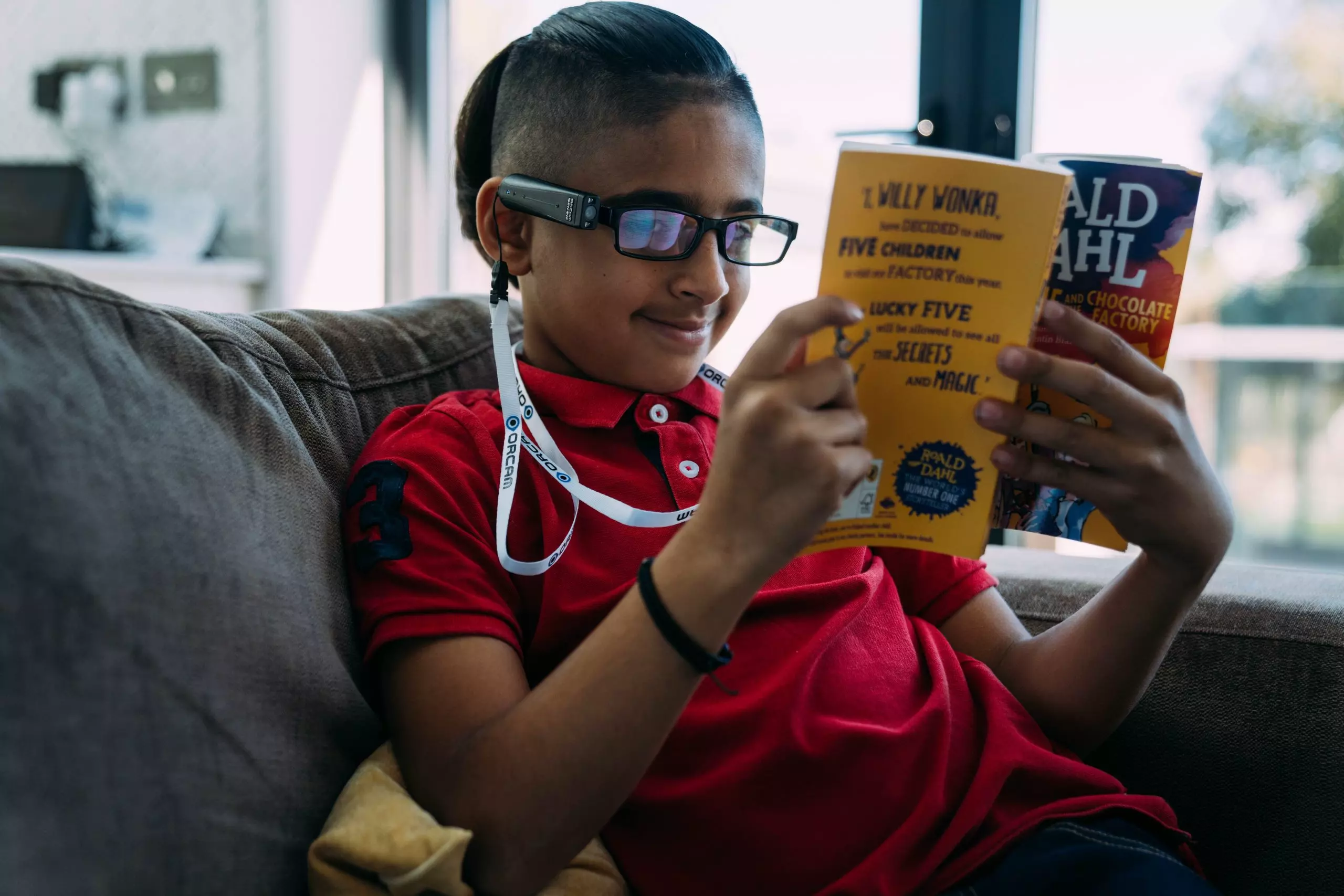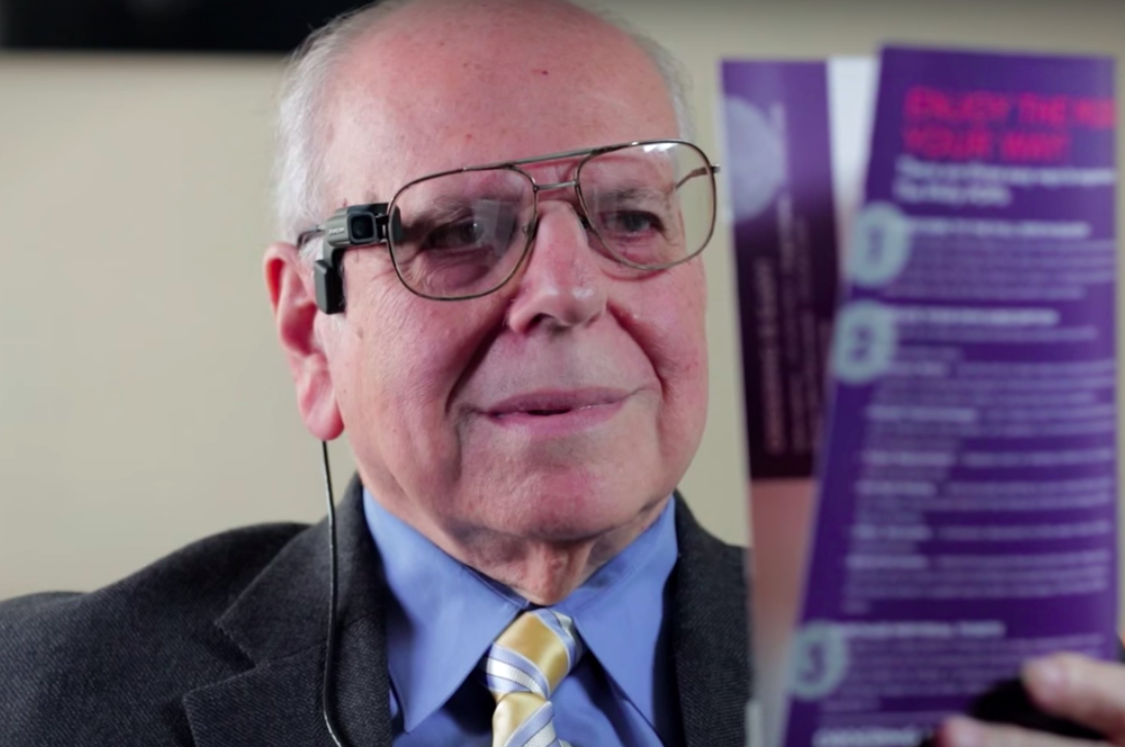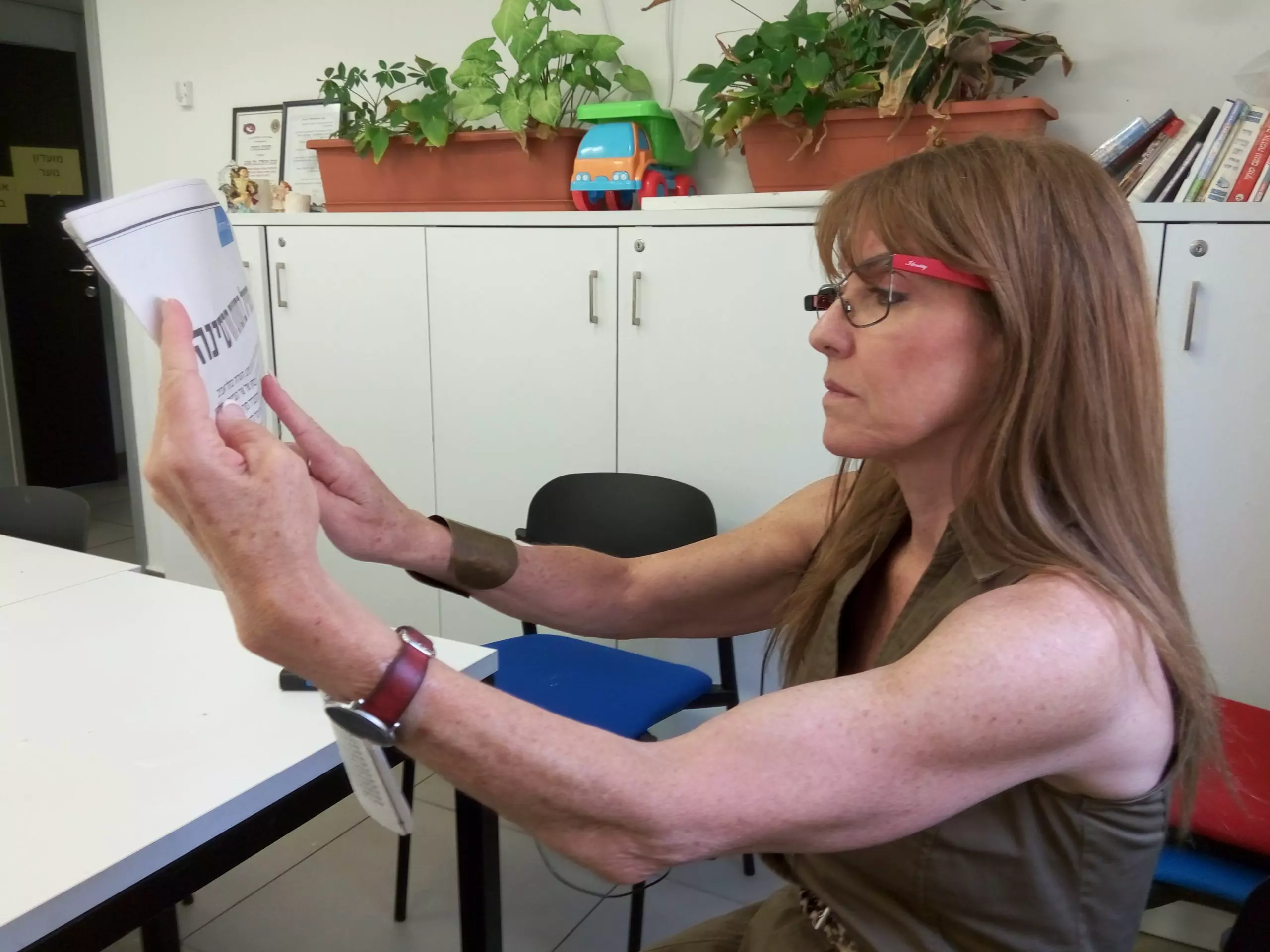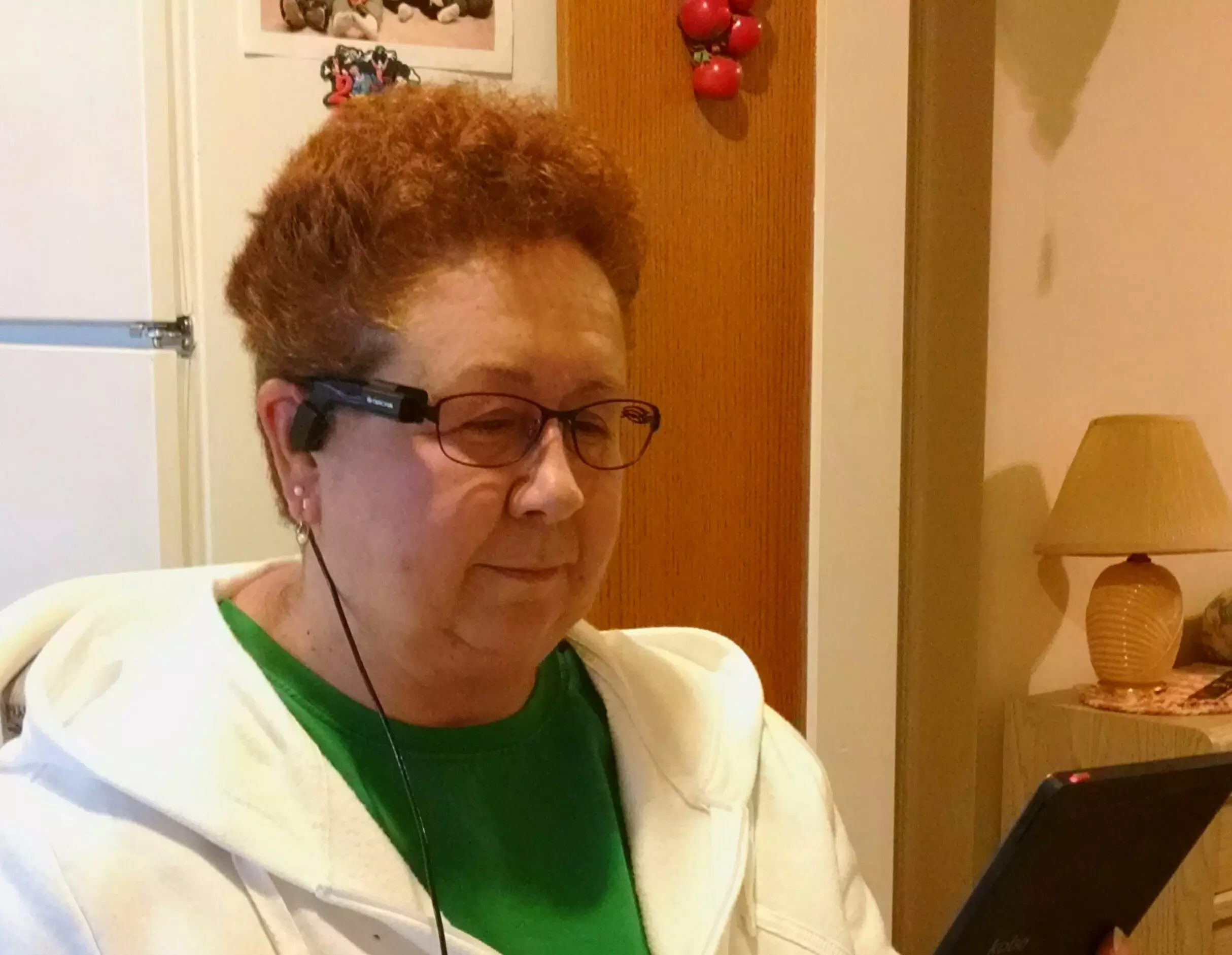Re-learning How to Read with OrCam
2017-01-31 | By Orcam Staff

I’ve loved books and reading all my life. Since losing my sight nine years ago I’ve learned to embrace audio-books as well as reading electronic copies of books in Word, PDF and plain text formats using screen reading software on my computer — it’s not the same as being able to hold a book in your hands while you disappear into it, but if it’s all you’ve got then it is 99 percent as good.
One of the curious effects of this is that, in most of those nine years, I’ve listened at a rather frightening speed; I can get through two books, cover to cover, each week without breaking sweat. I tune the speed of what I’m reading to be appropriate to how much information I want out of the material. For newspapers and magazines I read at one of the faster settings — though I know many blind people who listen at speeds that I cannot cope with — and for books, particularly poetry, I slow it back down to only a couple of notches above what an audio-book would be recorded at.
Sometimes there are books that I would love to read. There are occasions where I wish I could go to a library and root through ancient (or out-of-print and never likely to be available in electronic formats) texts. This week the ability to do such things became possible.
Four months ago I heard on a blind forum about a pair of glasses that would allow blind and visually impaired readers to see. They are made by a company called OrCam. The glasses are a pair of very ordinary plastic frames — which of course you can swap for a funky designer pair if you are so inclined — and on the right hand arm of the frame is a small camera and speaker. Attached to the camera is a cable that runs down to a small control unit which has buttons for power on/off/standby; volume up/down; and a trigger button. That is it, all that is needed for sight.
As you’ll see in the photo below I am wearing the OrCam glasses and you’ll notice the camera at the front of the right arm, with a lead running down from the camera to the control unit which is on a belt clip which I’ve attached to my left hand pocket. I don’t know if you can see it, but the little speaker unit sits just by my ear lobe.
Significance for my writing
When I took my poem to creative writing group this week I learned a couple of things that I would do differently next time. The easiest mistake to make is forgetting how fast is a bit fast for regular sighted folk. I will slow the rate down a couple of notches next time, though I didn’t have it set overly fast.
The second matter wasn’t a mistake, just a symptom of how any mechanical system reads text aloud. In poetry you usually have short lines, often with line breaks without any end of line punctuation. As far as a screen reader or a pair of OrCam glasses is concerned that is all the same line of text and it will read it as if you had written it like a single sentence of prose. So the listener, myself included, loses the poetic nature and structure of the words. So if I am going to use the glasses to read out my poems then I will punctuate each line so that it ends with either a full stop, comma, question mark or exclamation mark, as appropriate.
I haven’t yet tried out the different effects of each mark in detail, but I know the screen reading software on my laptop pauses longer for a full stop than a semicolon and shortest for a comma; dashes – and — (dash and m-dash) do not pause at all; one quick test run I did suggests that there is little, if any, difference between a full stop at the end of a line or a comma, in which case I would punctuate a poem for the glasses ending every line with a full stop.
In theory, the glasses could be used with the reading volume set so low that only I could hear it and then I could listen to a line and then read it myself. I have a rubbish memory, for both my poems and those of more famous poets, so this would be incredibly helpful if I want to read more than half a dozen poems at an event. Unfortunately, this is not likely to prove a satisfactory result.
Listening to the OrCam read a line then me repeating that line then the OrCam reading the next line followed by me reading the line just has too much pausing while I wait for the OrCam to finish reading its part. It would be possible to only punctuate every two or three lines, which would sit nicely in my memory for me to repeat, but then there would be an even longer pause while the OrCam read the next three lines. So either the OrCam reads the entire poem for the audience to listen to (external speakers can be connected) or I learn to memorise more poems and read them without any assistance … unless I ramp the reading speed up to silly-fast level, barely slow enough to understand what has just been said, which would serve as the desired memory aid but with a minimal length of pause between me reading one line and then the next.
At this point I should add that the OrCam is not only for the blind and visually impaired — people with dyslexia, for example, may find the text to speech better than trying to read the text with their eyes.
I remember back to my high school days where the teacher would hand out something to read in silence after which you would be asked questions about what you had read. At most of the creative writing and poetry workshops I’ve been to the tutor has read any material, or asked for a participant to do the honours. Being able to have the ability to read a printout if needed will be a big help for me, and it also means I can take the paperwork away with me and read it for myself any time I like.
Bells and whistles
No technological device would be complete without a few bells and whistles. The OrCam has a fancy feature that allows it to read the time off the watch on your wrist. You hold your wrist in front of the lens, as if you’re reading the time with your eyes, and the glasses tell you the time, and if you hold your wrist in that position for a couple of seconds then it will add the date too.
Of course it’s not really reading the hands on your analogue watch or the digits on your digital one, it just recognises the gesture and speaks the time according to its internal clock, which you set and adjust as and when necessary. I find it pretty cool when I hold up my wrist devoid of watch and anybody standing near enough hears it reading the time and I just leave them to believe that’s the same superpower that makes me a poet 😉
I’m 5 days in to my 30 day money back return period, and I don’t see (‘scuse the pun) any reason I will be returning them 🙂
Check out my blog to read more about my OrCam experience: http://Gilesturnbullpoet.com/2016/10/16/re-learning-how-to-read
More Stories

OrCam's tech empowers blind 10-year-old soccer fan to find independence
2024-01-23 | By OrCam Staff

A Girl With Reading Challenges Receives A Life Changing Gift
2024-01-16 | By OrCam Staff

How OrCam Has Liberated Me: Dr. Leonard Rosenfeld's Story
2024-01-16 | By OrCam Staff

Meet Eli, OrCam's Youngest User Dealing with Childhood Blindness
2024-01-16 | By OrCam Staff

Read the guest post by Hadas Bar - OrCam
2023-12-17 | By OrCam Staff

A New Level of Independence: The Story of Elizabeth Simonds - OrCam
2023-12-14 | By OrCam Staff



